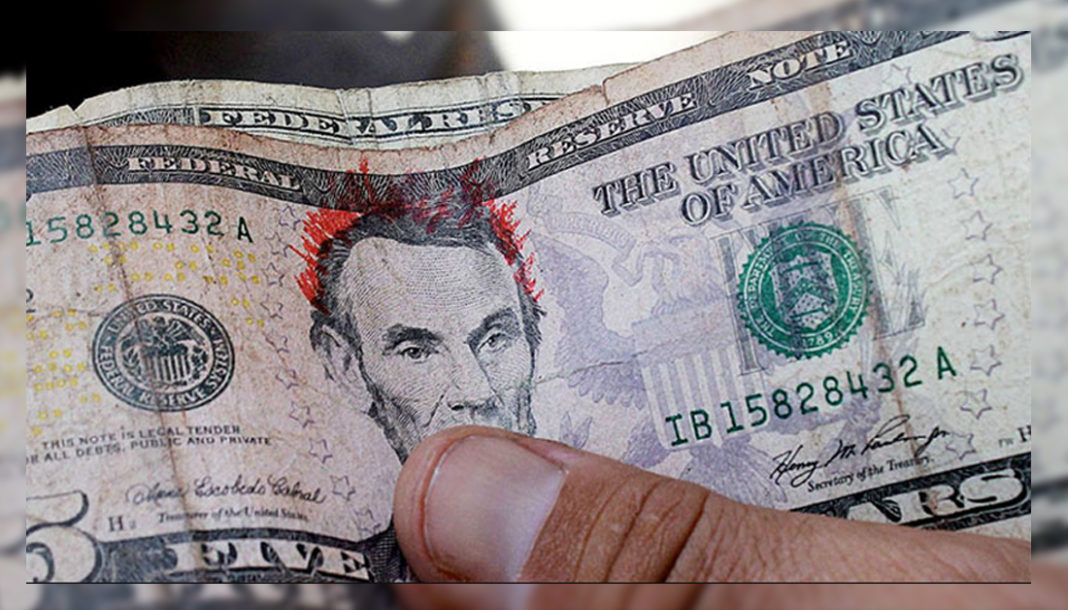“I buy your ugly cash”, the new business with dollarization in Venezuela
Written by our venezuelan correspondent
Before criminalized and now praised by Nicolás Maduro, de facto dollarization made its way in Venezuela to displace the bolivar due to its inability to preserve the purchasing power of Venezuelans. In shops and supermarkets across the country, it is already common for prices to be set in foreign currency, while the bulk of the population, tied to state subsidies, bite the bullet to get a few dollars.
According to the most recent studies by the Ecoanalítica consulting firm, currently 6 out of 10 transactions in the country are carried out with the US currency. And it is that with the flexibility of the exchange control in 2019, the use of the dollar even extended in popular sectors of Caracas. It gives to buy everything: from real estate with high prices to the simplest, like a street burger.
However, the vertiginous advance of the dollar has also brought problems to a population in need of space to escape the hyperinflation that devours their income. Still lifes and some businesses, key to the massification of the dollar as a payment method, began to stop receiving tickets in poor condition or scratched. No single criterion was needed. It was only enough that the clerk or manager on duty considered them ugly or unfit for an operation to fail.
Leonardo Vera, economist and tenured professor at the Central University of Venezuela (UCV), affirmed that this type of custom is strongly established in countries where a currency other than the domestic one circulates. “As there is no Central Bank to which you can return banknotes in poor condition or damaged banknotes, for many it becomes a risk to accept them in common transactions,” he said in conversation with El Pitazo.
“However, these banknotes continue to have value, even with deterioration or a state of breakage, damage or wear. They continue to have value in the international market. For example, you could go to the US and pay with them without any problem “, stressed the expert. Vera sees this situation as a consequence of the informality with which the US currency has advanced in Venezuela.
Unlike Ecuador, whose economy has been dollarized since the beginning of 2000, any possibility of an agreement remains blocked between the Maduro government and the Federal Reserve (Fed) for the import of dollars in cash that circulate in the national economy, in part because In 2019 the Central Bank of Venezuela (BCV) was sanctioned by the United States Department of the Treasury.
Faced with this informality of “Venezuelan dollarization”, the rules have been left to the market itself, and while some take the body out of the “ugly dollar”, others see a business opportunity.
On the sidewalks of a busy boulevard in Caracas, dozens of young people tirelessly promote a message: “You buy broken, damaged bills, dollars or euros.” It’s the face of a booming new business: buying branded or battered cash, not circulating openly in other establishments. The procedure is simple, explains one of the administrators, who preferred to protect his identity for safety.


